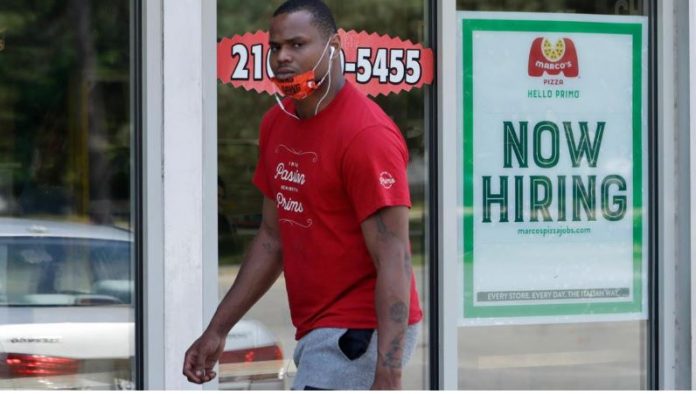Post-lockdown euphoria has seen markets rally, but the best investment advice may be to do nothing with your portfolio
Post-lockdown euphoria, or at least the loosening of restrictions that have dogged us for the past few months, boosted stock markets around the world in the past week.
It is hard not to walk with a spring in your step when the beach you have been unable to visit for two months suddenly becomes available again. Facilities that you hardly used in the past have enhanced appeal, even if social distancing rules remain in place.
But I could not help agreeing with the chief executive of Wizzair, Jozsef Varadi, speaking at Dubai’s virtual Arabian Travel Market last week when he said the global economic recession now coming would actually prove a bigger problem than the coronavirus pandemic itself.
The International Monetary Fund has this down to be the worst recession since the Great Depression of the 1930s. Investors ought to be feeling singularly cautious, not racing to bid up the stock market.
In such a climate, the best investment advice may be to do nothing to your portfolio if you really are a very long-term investor.
Simply missing out on a few of the markets’ best days can seriously compromise your long-term performance that is dependent on the math of compounding gains over a very long period of time.
But if you have any immediate or near-term requirement to draw on your savings then go into cash. Just because investors would all like to see a V-shaped recovery, and keep their money invested for it, does not mean this is going to happen.
That is a triumph of hope over experience, not a sensible approach to wealth management. Share prices represent discounted cash flow and the direction it is heading is down and not up, or at least certainly not quickly back to pre-crisis levels.
Bond yields are being artificially held down by central banks. But that leaves bond prices held artificially high. Can this last forever? So, here are nine cautionary random economic data points to bring the optimists back down to earth, and perhaps prevent them from losing their hard earned savings:
1. US unemployment rate
The unemployment rate fell to 13.3 per cent in May from a peak of 14.7 per cent in April and over 40 million Americans have filed for unemployment benefits during the crisis. What does the removal of discretionary spending by these people mean for the US economy? Just how many will be re-employed as the economy recovers? How long will this take? Will there be more social unrest?
2. Global unemployment rates
Unemployment is also soaring across the rest of the world, but in the UK and Europe, government-sponsored schemes are hiding the true picture. Imagine what will happen when these expensive support programmes are withdrawn.
3. PMI data
Purchasing Managers’ Indexes are at all-time lows. In the euro zone, the IHS Markit’s Composite PMI jumped to 31.9 in May from 13.6 in April. But this is still the second lowest figure on record and indicates a commensurately deep business recession in progress now.
4. Asia’s factories
Asia’s factories have remained in the doldrums even as the lockdown lifts. PMI data from Japan, South Korea and Taiwan fell last week, while the numbers for Vietnam, India, Malaysia, Thailand and the Philippines remained well below 50, the dividing line between expansion and contraction.
5. China’s growth rate
China has abandoned its official growth target of 6 per cent for 2020. The second largest global economy reported a 14.2 per cent drop in imports in April, although demand for pharmaceutical products and medical supplies helped exports edge 3.5 per cent higher
6. Britain’s economic output
The British economy could shrink 13 per cent this year, its deepest recession in 300 years, according to the government’s Office for Budget Responsibility. The OBR expects economic output to crash 35 per cent from April to June with unemployment soaring to 10 per cent; and the government’s expected budget deficit of $342 billion (Dh1.26 trillion) in the 2020/2021 tax year will be 14 per cent of GDP – higher than in the Great Recession of the 1930s.
7. Oil prices
Oil prices have bounced back from under $10 to around $40 a barrel. But this remains almost 50 per cent off recent highs. Gulf governments have leveraged a low borrowing cost environment and successfully issued bonds at low interest rates.
8. Car sales
American auto sales are so bad that the industry refuses to publish monthly sales data. British new car sales plummeted 97 per cent in April, the worse performance since the Second World War. In Russia, auto sales fell 72 per cent in April with less than 40,000 vehicles sold. Indonesian car sales plunged to 7,871 cars sold in April from 84,056 in the same month a year earlier, according to the country’s largest auto distributor Astra International.
9. US retail
US retail chains filing for bankruptcy this year include: Papyrus, Kroger, Earth Fare, Noah’s Event Venue, Pier 1, Art Van Furniture, Modell’s Sporting Goods, FoodFirst Global, J. Crew, Neiman Marcus, Stage Stores, Garden Fresh Restaurants, JC Penny, Tuesday Morning and Le Pain Quotidien (but not its Belgian parent company). There will be many more casualties worldwide as shopping moves online and malls empty.




